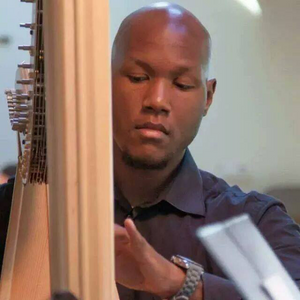
The best way to know if a tip jar is appropriate at a gig is to determine the situation. If you are playing in a restaurant, coffee house, or club, be sure to check with management first. Most patrons are accustomed to tipping in these environments and expect to see a tip jar.
If you use a tip jar, be sure that it is a clear container so patrons can see money inside of it and be sure to put a $5 bill in the jar before you start playing. The power of suggestion works very well! Also, if you have a tip jar, be prepared for customers to request songs for potential tips. If you are not familiar with the song, you could play a similar song that you know by the artist.
Another item that you could put beside the tip jar would be your CD (if you have one). This is another potential revenue stream for you but be sure to check with management first for permission. Also, be sure to have your business cards visible for potential gigs. Private parties pay more and would not be an appropriate place for a tip jar.
—Cindy Horstman

I recall seeing a few tip jars at venues that showcased live music before the pandemic. On a different note, I know performers that have supported themselves financially through busking for a period of time. But is a tip jar appropriate for a harp gig? In my opinion, the answer depends on several variables: the type of gig, venue, and consent from the venue’s manager or contractor hiring you.
I honestly believe that a tip jar or “support jar” (patent pending!) would not offend anyone in a post-COVID world. A support jar is appropriate if the harp is prominently featured in background music at cafés, upscale restaurants, and hotels. I would not use one at wedding ceremonies or recitals obviously. Everyone is aware of how the pandemic has affected and changed most of society. But I feel only a few are aware of how COVID truly impacted performers both emotionally and financially.
—Mason Morton

A support jar and a brief paragraph explaining how you were affected by the lack of performances in 2020 and 2021 would be eye-opening. Ending the paragraph by sharing how their financial support literally keeps live music alive shows authenticity that is hopefully well received.
It depends. Is the gig a private party in someone’s home? Is it in a public venue? Is it a wedding? Did you book it yourself, or are you working for an agent? Considering these factors will help you make a wise and informed decision about using a tip jar. Ultimately, the only thing that really matters is if you have permission from the host or agent to do so.
We’ve all seen musicians using a tip jar in a public venue like a restaurant, or by sidewalk buskers; it seems normal and almost expected. But have you ever seen the musicians at a private reception using a tip jar? In this setting a tip jar is inappropriate; you are being paid by the hosts, and it reflects badly on them if you’re soliciting their invited guests. If you’ve been contracted by an agent, using a tip jar without the agent’s permission could cost you future work.
If you’re playing for a fundraiser and perhaps donating your services, then a tip jar might make sense, as long as the host or employer allows it. In this case, you could even make it a condition of accepting the gig. If after careful consideration you choose to use a tip jar, then by all means make that jar enticing! A bit of decoration and an expression of gratitude will go a long way toward encouraging your audience to generously support you. •






